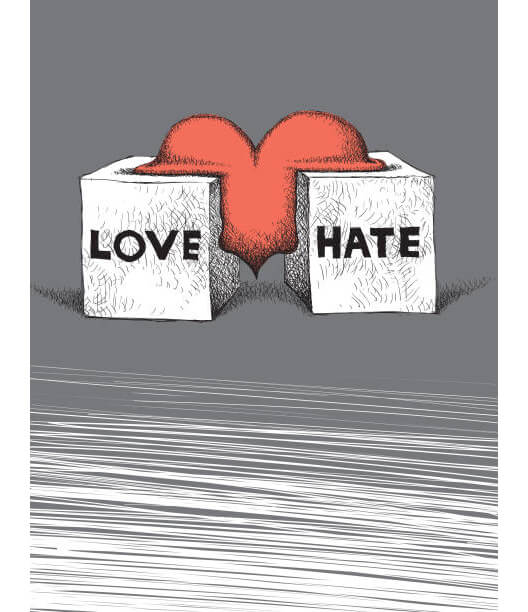Conflict is not just a disagreement over how much screen time your kids get. Conflict is an emotional experience that quickly absorbs you. It can affect your mind, finances, physical well-being, your friendships, romantic relationships, and familial relationships (even with your kids!). It can also affect your sense of self.

Stress can lead to physical symptoms such as headaches, stomach problems, eating disorders, frequent colds and infections, muscle pain, restlessness, lack of focus, racing heartbeat, difficulty breathing, physical exhaustion, sleep disorders, or full blown panic attacks. It can also create hyper-vigilance where you are always looking for signs of threat, you’re on-guard and quick to react.
Your body will express all of the stress that is happening even if you can keep it tamped down in your mind, so while distraction can be valuable it can’t be your only coping mechanism. Even though grief and anger get better over time they don’t just disappear – you have to do some work to get all of these emotions out of your body. Stress left unchecked can cause high blood pressure, heart disease, obesity and diabetes; chronic stress is a dangerous condition.

When we are under high levels of stress, our rational thinking and decision-making abilities go out the window. We say and do things impulsively and carelessly. Stress changes the way we see things and think about things and can overwhelm our minds and bodies in a hot minute. Stress gets in the way of our ability to accurately read a situation or stay aware of our own feelings. When we aren’t operating at our best, everything becomes more difficult, we make mistakes, we create problems that didn’t exist and then we cause – More Stress!
Don’t Ignore Your Grief

Active grieving requires the hard work of soul searching, which involves admitting to disappointment and failure, but it’s an essential part of developing resiliency. Most of us try to make the best of the situation without reflecting on what has been lost. We tell ourselves to “keep a stiff upper lip” and “what doesn’t kill you makes you stronger” but with divorce comes a lot of loss. Loss of expectations on how you thought the perfect life would be. Loss of love and companionship you once shared and dreams that didn’t necessarily materialize. You don’t have to grieve the other person to recognize that you have lost things that were valuable to you. Even if you weren’t together for a long time, you may still need to grieve that life took a detour you weren’t expecting and things maybe didn’t turn out the way you had planned.
Address the Inevitable Anger

It’s almost impossible to be separated without having some anger. Divorce is a hotbed of anger, resentment, bitterness, and other uncomfortable feelings. Nothing is more stressful than conflict after conflict. Those kinds of fights stay with you for the rest of the day, keep you up at night, and may bounce around in your head until your next interaction and conflict. Working through your grief helps resolve some anger but there are also some immediate steps you can take to let go of your anger and begin to detach. It’s vital you learn to work through all of these negative emotions – your very life may depend on it!
Notice, identify, and accept your angry feelings: just be aware of your feelings, when they happen, and what occurred to make them happen. Just being aware gives you a HUGE advantage
Step back when you feel angry and don’t react. Either wait until you can respond mindfully or remain quiet and ask that you two communicate in a different way or respond to the concern the next day. At some point you’ll be able to communicate in the here and now but give yourself time to make change.
Keep Moving Forward
To get to the point where stress is manageable, anger is controllable and grief is only periodic, you must come to terms with the fact that your marital relationship has ended. You need to be committed to letting go and “wiping the slate clean.” This doesn’t mean forgetting the past you’ve shared with your ex; it means consciously deciding to begin again. You consciously decide to put the past where it belongs and start anew without any grievances carrying over. Your Ex racked up enough negative points that you came to the point of separation and divorce, now that is over, and you get to start anew. You have an exciting, fulfilling life ahead of you full of promise – don’t let the negative health effects of stress interfere with your new path.




















